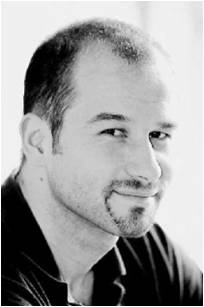 Ernst Gebetsroither-Geringer
Ernst Gebetsroither-Geringer
has been working as a Scientist at the Austrian Institute of Technology GmbH (AIT), Energy Department, since 1999. He studied music research and history of art (1990-1991), ecology (biology) (1991-1997) and mathematics and physics (1998-1999), all at the University of Vienna. In his PhD studies he focused on the combination of multi-agent system and system dynamics modelling (2007-2010) at the Mathematics Institute of the University of Klagenfurt (his PhD:“ Combining Multi-Agent Systems Modelling and System Dynamics Modelling in theory and practice.”). He has about 15 years of experience in modelling and simulation and works as a lecturer in this field at the University Vienna. Within 2007-2008 he was funded to work at the Institute of Artificial Intelligence (IIIA) of the “Universidad Autónoma de Barcelona” where he worked on agent-based simulation. Since 2010 he also lectures at the University Graz at the Institute for Systems Science, Innovation & Sustainability Research (ISIS). His main focus of expertise is in modelling and simulation combining different methods with the integrating GIS data.
What fascinates you about your field of research?
Modelling and simulation not only comes with a wide range of technical challenges such as model building, model validation and user suitability. Also, to create a model is teamwork that requires different experts from different disciplines to interact to create useful models.
Where do you see or would like to see the field heading?
Urban systems research – especially urban systems modelling and simulation — needs a broader discussion and contributions from different disciplines. Stimulating the discussion and bringing cross-disciplinary approaches together is the aim of the EMCSR symposium that I’m co-heading this year.
Is there an author / thinker, whose work inspires you in your own work?
I was probably most inspired by the works on system dynamics by J.W. Forrester and people who applied these methods, such as D. Meadows for his famous report to the Club of Rome.
What fascinates you about urban systems research? In your own words: Why should people go there?
Urban systems research is key to understanding how the vast majority of human beings live together, under various circumstances, with varying developments of cities and their surroundings. For developing our cities further, it is important to understand which suggested changes, e.g., for a transition to a sustainable energy system or a so called low carbon society, may work or not, and why. Our symposium will provide a platform for discussion about modelling approaches to complex urban systems. It is open for a more critical view on what current modelling and simulation approaches can deliver and how we can accelerate developments now.



